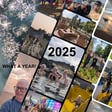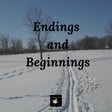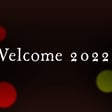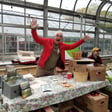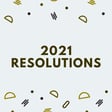Become a Creator today!Start creating today - Share your story with the world!
Start for free
00:00:00
00:00:01

Technology's benefits and risks with Glen Sharp
In this episode, I talk about continuing to grow despite a worldwide pandemic. I also interview Glen Sharp from Sharp Innovation Solutions about the risks and benefits of technology, the importance of developing your personal assets and the importance of local communities.
Transcript
Winning Big on Chumba Casino
00:00:00
Speaker
Mary redeemed a $50,000 cash prize playing Chumba Casino online. I was only playing for fun, so winning was a dream come true. Chumba Casino is America's favorite free online social casino. You, too, could have the chance to win life-changing cash prizes. Absolutely anybody could be like Mary. Be like Mary. Log on to ChumbaCasino.com and play for free now. No purchase necessary. Void were prohibited by law. 18-plus terms and conditions apply. See website for details. The voice of the preceding commercial was not the actual voice of the winner.
Quebec's COVID-19 State of Emergency
00:00:32
Speaker
My name is Tracey Ariel and I am an apologetically Canadian. I'm in Montreal and yesterday the government of Quebec extended our state of emergency until November 28th. The government wants to get the provinces active cases from an average of a thousand a day to about 500 a day or less before measures will be loosened.
00:01:01
Speaker
No one's even talking about the possibility of zero cases. In Canada, as a matter of fact, only Nunavut has no cases at all. The Northwest Territories, the Yukon, and Prince Edwarduk Island have fewer than 100 cases each. And every other province has to worry.
00:01:19
Speaker
Quebec, Ontario, Alberta, and British Columbia have out of control situations. Quebec, where I live, has more than 100,922 cases since the pandemic began. In Ontario, at 71,244 cases, Alberta, 25,733 cases, and BC, 13,371 cases.
00:01:41
Speaker
Worldwide, more than a million people have died of COVID-19 so far, and 215 countries have epidemics underway.
Global Travel Restrictions amid COVID-19
00:01:50
Speaker
It really is a global pandemic. Canada sits 30th on the list of the number of COVID cases that they've had since the beginning of the pandemic. The US, India, Brazil, and Russia take the top four spots. France, Spain, Argentina, and Colombia all have more than a million active cases.
00:02:09
Speaker
Indonesia and Hungary are facing multiple cases this week. Around the world, 10,453,010 people have the virus right now.
00:02:24
Speaker
Discretionary travel is banned, and many countries restrict entry to emergency situations only. Europe opened its borders in July to some countries, including Canada, but they just closed their borders to us last Wednesday. Now it's only Australia, China, Japan, New Zealand, Rwanda, South Korea, Thailand, and Uruguay, who can enter the European Union at this moment.
00:02:50
Speaker
So why am I telling you all this? Is this a doomsday episode? Am I caught in a circle of hell and I just have to share? No, none of that. I'm just telling you.
00:03:04
Speaker
and me through this just to keep moving forward. Keep figuring out how to serve your clients best. Get up, dust yourself off, and figure out how to do what you do even better. Get yourself up, dust yourself off. Keep figuring out how to serve your clients best.
Montreal's Homeless Shelter Initiative
00:03:22
Speaker
because it's changing. I noticed that this Thursday the City of Montreal will be planning to announce their decision to convert a downtown hotel to a homeless shelter until March, which will add 380 much-needed slots to the current supply. Shelters in Edmonton, Kitchener and Toronto have already had similar initiatives since the pandemic began and there are other initiatives spreading across the country.
00:03:46
Speaker
So far all the options are temporary, but you can imagine if this pandemic goes on, some of these options will become permanent solutions, especially because so far the results with the vulnerable populations are very, very good. Although I have seen reports of neighbors being a little bit frustrated.
00:04:04
Speaker
with their communities having so many vulnerable people pulled in all at once. Anyway, but what I want to say today is that if visitors serving the most vulnerable Canadians can change how they operate to make their clients happier and to fill their mission better, then surely as creators, we can do that the same thing. So my question is, how do we do that? And I have a few answers so far, but I'd love to hear how you're doing it too.
00:04:31
Speaker
So first, we have to remember why we do what we do and why people need us. This is assuming that you love what you do. Obviously, if you don't love what you do, you need to find a new strategy so that you do love what you do, so that you can
00:04:46
Speaker
so that you can be obsessive about all this stuff like I am. For my part, I'm convinced that Canadians have the essential attitude, skill and upbringing collectively to make the world a more cooperative, diverse, peaceful and vibrant place.
Entrepreneurial Insights with Tracey Ariel
00:05:02
Speaker
And I'm passionate about discovering and telling stories about how we've thrived and grown over the centuries, including through many of the world's most difficult points of time.
00:05:12
Speaker
how we learn to use the best natural and imaginative resources that this earth offers. How can we work together to make everybody better off? Remembering that core belief gives me a strength to keep finding a way to tell our stories well. I also think we have to put structures in place so that we have the tools that keep us moving forward, so that even when days get tough, we can keep growing.
00:05:40
Speaker
In my case, my structures include a creative entrepreneurial business model with multiple facets. Business partners who share my passions, coaching and training from other successful entrepreneurs. The ownership of almost all of my own copyright.
00:05:56
Speaker
a home office so I can determine my own schedule, four website home bases, and lots of technological tools that allow me to create, distribute, and sell products anytime. Most of these things didn't even exist five years ago, and if they did, I wasn't using them to their full potential. Can you imagine how creative work will change in the next five years?
00:06:17
Speaker
I can't. I think it's changing so fast, but I'm trying to imagine it anyway for a five-year strategy that plans that I'm doing for the businesses that I'm involved with. I find it a lot easier to be flexible in situations if I have a written version of what I expect to happen already. And if you get the profile, you will have heard a bit about this before. Now, to make these plans even stronger, I've added two parts to every business plan, short-term strengths and potential long-term wins.
00:06:47
Speaker
So right now I'd just like to talk about the short-term strengths that we all need to consider. How will we support clients stuck at home? That's the big question. And I think that education and entertainment together have never been so necessary. For my part, I've committed to creating and publishing our stories and to teaching others to do the same.
00:07:08
Speaker
Let me know what you're doing. I think it would be really fun to try and share what people are doing as strategies to make people's home life a little bit more exciting. I have even some ideas of taking people on trips with me virtually, of course. Anyway, a lot of the companies which I'm involved with are updating our business plans, updating our websites, updating our virtual projects, and trying to figure out how we can actually serve people better in the times that we're in.
00:07:37
Speaker
And as a matter of fact, I just invested in a Zoom professional account for the next year to make things happen online more readily. It's pretty clear that I need to up my game when it comes to online activities. So let me know what it is that you're doing in the comments below.
Glenn Sharp on IT and Innovation
00:07:53
Speaker
And that's why I'm excited to present an interview with Glenn Sharp from Sharp Innovations. Glenn is a project manager and technological expert, and he's got a new course coming out about Zoom. So Glenn, maybe you could start by introducing yourself.
00:08:08
Speaker
Okay, thank you, Tracy. So I've been working for quite a few years in the information technology area and my business is really focused on leveraging the abilities of the information technology to allow us to become more innovative and creative in what we do. And one of the big things that I'm looking at is the training of people
00:08:33
Speaker
so that they can take advantage of all of these opportunities that the new technologies are bringing to the forefront. So it's something what I call intelligence augmentation, where it can actually make us enhance our capabilities.
00:08:49
Speaker
through leveraging the use of technology. And I've introduced that with the intent of getting people to realize that maybe artificial intelligence, where we're looking at information technology as being kind of a threat for people because it could replace people, is that we really are in a unique point in history where we're finally being able to
00:09:15
Speaker
interact with computers in ways that are much more natural and so we can augment intelligence generally rather than try to use these technologies to replace people.
00:09:25
Speaker
Well, and this podcast is a perfect example of that. This is the kind of thing that couldn't have been done even 10 years ago. You know, I'm in my house, you're in your house and we're having a conversation and it's being recorded on your computer and my computer at the same time. And at the end, the system will download it onto my computer and then I'll be able to publish it as a podcast. You know, this is the kind of thing that in the 50s,
00:09:48
Speaker
when radio started that you know it took entire rooms to do what we're doing just sitting here from our desks you know.
00:09:57
Speaker
Yeah, and it's created all sorts of opportunities for entrepreneurs because the whole models of way people do business, it really should not be underestimated what a radical change it is. We don't have the gatekeepers to the same extent as there was in the past where you kind of had to get permission to publish a book or permission to do a video or permission for people to be able to see your work.
00:10:23
Speaker
And now there's technologies that are allowing us to be more expressive in multiple medias. And we don't need anybody's permission to do that. It's up to us to just do it. Yeah. And I know one of the things that you really care about is education. And I was lucky enough to see a presentation that you did about Zoom and improving your presentation skills on Zoom. Can you talk a little bit about how your business has changed because of that focus?
00:10:52
Speaker
Well, this has been a long time interest
Pandemic-Era Technological Shifts
00:10:55
Speaker
for me. Actually, it's been about over 30 years that I originally did a paper. I got very excited about the potential of what computers could do. And so I wrote a paper about computer conferencing, which is the term that I use then. People were very skeptical at that time that
00:11:14
Speaker
video, high speed video over the internet would be impossible to do. We'd never have enough bandwidth to be able to do that kind of thing. The technology just wouldn't be able to support it.
00:11:26
Speaker
And of course now we're living that every day and Zoom popularity and other companies have video services as well is just skyrocketing because it's needed so much. And you know, it would be something that we should really ask ourselves is what would we be doing in this current situation with the pandemic and social distancing if we didn't have this kind of technology at our hands to be able to interact with other people?
00:11:54
Speaker
Yeah, no, it's true because culturally, it's been a real shock for people to have to wear masks and to be distant. And I mean, here in Quebec, we usually kiss each other on each cheek. I don't think that's going to be coming around for quite a while. We're taping this now in August 2020. The lockdown in Canada has been, we've been opening up from that, but still there's been social distancing and quite a lot of measures taken to try and make sure that people can protect themselves. And as you say,
00:12:23
Speaker
Most of us, if we're, if we've been able to work, there's lots of people who haven't been able to work at all. But if we have, we've been relying on digital technologies of all sorts, whether it's Zoom in order to hold meetings, or whether it's Square in order to take money, or, you know, unless, you know, whatever you're doing will have been relying on technology to make it possible.
00:12:47
Speaker
Yeah, and I think one thing I'd like to mention is just that a lot of times when the discussion comes up to the subject of innovation, technology innovation is only one aspect though. And most people think of innovation in terms of technology, but there's a lot of innovation that has to happen about human behavior and how we use the technology.
00:13:08
Speaker
And one of the things that can be very surprising is that the technology can be used in ways that people never thought it would be used. And that's one of the areas where most of the innovation can happen of people getting creative and using the tools in ways that can create new businesses and new types of business models and allow us to do things that weren't even possible before. Yeah, well, we've seen that with some of the
00:13:40
Speaker
creative ways that people have produced movies in this particular pandemic. You know, people are taking their phones and they're going in there and they're pulling it into various forms and they're creating an entire new, it's almost like when, do you remember the Blair Witch project, how that changed cinematography, this
00:14:00
Speaker
has also changed all sorts of art forms. There's musicians all across Canada playing on Zoom. They're doing concerts where each one of them is in their own house, but they're presenting it together. The creativity in this pandemic has definitely been one of the bright spots in a very scary, frustrating, difficult situation. Well, I'm very excited about the future. I'm a grandfather.
00:14:24
Speaker
And I have grandchildren that they don't know it being any other way than what we're living today. And so they've seen, you know, we have a channel, for example, FaceTime channel, and we're constantly sharing videos and photographs. And so that's normal for children in this age to have a channel and to have a YouTube channel even, let's say, at a young age. And so it's totally natural for them
00:14:54
Speaker
to perform and express themselves using all of this media where in the past, I mean, you had to be a television personality or you had to be a radio broadcaster or you needed to be a news, work at a newspaper to write news. And all of that's been what, you know, you could call it democratized that anyone who is so inclined can learn how to do those things and express themselves in much more rich ways.
00:15:24
Speaker
Yeah, yeah, well, it's true.
Building a Digital Brand
00:15:25
Speaker
And creativity is really taken a is really blossomed under that. I mean, I know my son, he's in his 20s, and he's down, you know, he's been, he's built CNC machine, and he's got 3d printer and all sorts of things downstairs. I mean, I basically have a little manufacturing plant in the basement, that, you know, years and years ago, that would have been a huge building would have been required to produce the same kinds of
00:15:53
Speaker
of items. Human creativity, I think, is really being augmented by technology. It's true. Yeah. And you specialize in doing that. Can you talk a little bit about some of the successes you've had with your business? I know that you specialize helping people create brands online. Can you talk a little bit about one of the success stories, maybe? Yeah, I think it varies. There's quite a few different examples that I could give.
00:16:20
Speaker
You know, one recently just helping people with their websites and their email capabilities so that they can have their own brand and they can own. You know, one of the things that I believe in is that people should have their own home site. That's their own brand that they control rather than only communicating using media, social media.
00:16:45
Speaker
have their own capabilities to control their identity and their brand. So that's something that I believe in. Social media has its advantages, but I actually somewhat, this might be controversial with some people, but I don't recommend that myself. I think that's a bit of a trap.
00:17:10
Speaker
to use social media because it's there and it's free and it's easy to use to rely on it completely. Yeah, no, I agree with you. I have traceriel.com and I've had that since I did built my first web page in 1995 using just HTML script. And for just that reason, because as a as a creator, I've always understood the value of copyright and owning your own
00:17:35
Speaker
land before you actually branch out and partner with other people, which is what you're doing with on social media. It's really you're creating a partnership with a corporation and the power that they have and the power that you have is so your power is so much lower than theirs. It doesn't take much for them to be able to remove you entirely from their entire platform. Yeah, they can change the rules at any time to suit themselves.
00:18:00
Speaker
And yeah, it may not suit what you've actually created there. So I think it's really, I think, I don't think that's controversial at all. I think it makes good business sense. You create your own platform that you own and then you branch out in partnership with other, with whomever you would like to collaborate with. And that includes to me the social media players or media players. I mean, as a journalist, you know, I publish a lot of my work has been published.
00:18:26
Speaker
in other people's platforms. So that's part of the reason why I've always made sure that I had my own as well, because I don't have control over what edits they do on my story, for example, it gets published with whatever, I mean, lots of them don't do that, but some of them do. And, you know, I don't have any control over that. So it's nice to have my own platform too. So I think people need to think about that.
00:18:48
Speaker
Yeah, well, I think it's a very important principle that you have direct contact with the people that you're serving and wanting your audience so that somebody else is not in between or some other company is not in between. And they have control over that because I really believe in small businesses are the fuel of the economy. And it's important for small businesses to have some control over their identity and brand and
00:19:19
Speaker
their content that they generate. Yeah. Can you talk to me a little bit about what is challenging that? Like what, what solutions do you have to solve for people when you're trying to get them to do this for the first time, maybe.
00:19:31
Speaker
Well, I think one of the things that some of it is fairly simple, but a lot of people don't think of it that way. So, you know, I have conversations with people quite often where they say, I'm on Facebook and I've got
00:19:49
Speaker
the capability of putting information on Facebook, why would I need my own website? And so, you know, I think that's part of the education aspect of it, to be able to explain to people why that's important. You know, another one, too, for me, because part of my background is in security as well, is getting people to understand the importance of privacy because
00:20:18
Speaker
As much as all of the this new technology is is wonderful, it can also be used for manipulation and it can also be used to gather surveillance information. And so there's not I find that there's still a lot of work to be done to explain to people why it's important that they don't they think that their information is not valuable and it is very valuable.
00:20:46
Speaker
And if you let it get into the wrong hands, it's leaving you exposed to manipulation, which is not a healthy thing for individuals or society as a whole.
Learning from Failures and Community Building
00:20:59
Speaker
Can you talk a little bit about your most challenging failure and how you recovered from that in this landscape? The most challenging failure that I've had is an interesting one and I guess the thing about failure is I think the important thing is trying to learn from the experience. The one that comes to mind
00:21:23
Speaker
Uh, because I think, you know, with entrepreneurs, there's your, if you're not failing, uh, in some ways you're not really trying to implement enough. Lots of examples of, of failures, but you were asking about the most challenging one. And the most challenging one for me was, uh, when I was working, uh, pretty doing quite a lot of work for the local chamber of commerce where I live. And so I was a part of a committee.
00:21:51
Speaker
Actually, I was director in the Chamber of Commerce, working in marketing and economic development. And we did some, I think, some of the things I'm most proud of were done for the community.
00:22:07
Speaker
to, you know, we did break through things like developing a magazine for our local area to promote local business because strangely enough people don't even know about how great their own community is sometimes because there's not enough publicity about that. And so there was, so you asked about failure and I'm talking about the great things we were doing, but the failure where the failure came in
00:22:31
Speaker
was that it turned out there was kind of a battle that was going on between amalgamation in Ottawa and there was different chambers of commerce. And so I live in the Orleans area and there was an Orleans Chamber of Commerce. So I was promoting the Orleans Chamber of Commerce, not in opposition to the Ottawa Chamber of Commerce, but just like we need them to be independent and work together, that kind of model.
00:22:59
Speaker
OK, OK. And there was some other people for various reasons, which is probably too long to get into, but their vision was not the same as my vision. They they basically sabotaged the local Chamber of Commerce and were in favor of having an amalgamation of all. There would only be one Chamber of Commerce in the Ottawa region, and that would be
00:23:27
Speaker
the whole of Ottawa with one Chamber of Commerce. And I was opposed to that. I worked very hard to try to have a different vision where you have multiple chambers of commerce working together.
00:23:43
Speaker
But ultimately, amalgamation happened and unfortunately, I was kind of proven right that it didn't work out well for my local area because all of a sudden it got neglected and there was no promotion of businesses locally.
00:24:04
Speaker
Orleans, where I live, is mostly known as a suburb. And so the prevailing attitude was, well, we're going to build businesses in downtown Ottawa. And the suburbs is where you go to sleep at night. Oh, no. So that was very disappointing to me. And so that, I would say, was my
00:24:27
Speaker
most challenging failure. But I learned an awful lot from that. I realized that I had, you know, you need to when you're working to I'm more determined than ever to build communities. I believe the importance of communities is is paramount. We need to, you know, being an entrepreneur can be a very lonely job. And sometimes you feel like you're all alone and nobody understands. Right. Right. And you need to work
00:24:57
Speaker
with other people that do understand which are other businesses. And there's a lot of things you need to do in a cooperative manner. And so I'm still very devoted to that. I'm just channeling that in a different way now because there's a lot of online communities. And I think this is actually an emerging thing from my perspective.
00:25:25
Speaker
Yeah. Uh, it's quite exciting. What's happening. It is very, and it's only just recently that some of these communities are really popping up. Like, and when I talk about communities, I'm not talking about, um, like I'm talking about something with more sophistication than just, you know, uh, Facebook group. Right. Right. Although a Facebook group can help, um, build a community. It certainly isn't by itself a community. That's for sure. Yeah.
00:25:52
Speaker
Again, it's interesting because I had a very similar experience here in Verdun, which is now a borough within the city of Montreal, which it became, I was actually quite against it joining the city of Montreal and that happened in 2002.
00:26:07
Speaker
But in the end, the community is almost stronger because we have such a we have we still feel like a small town. We still collaborate quite closely, even though and yet we still benefit from the larger being part of Montreal. So I do think that neighborhoods can become their own create, maintain their own identity if the people within them and work together.
00:26:35
Speaker
Well, I think it's a very interesting topic, actually, because a lot of the dialogue that's happening with the pandemic, because, you know, the whole world is experiencing this all at the same time, is there's this whole there's this push and pull between nationalism and globalism. And then on a smaller scale or more local scale, you know, there's the local governments and the provinces and countries and and what's the good mix of interaction between
00:27:05
Speaker
uh these and sometimes it's very um it almost seems uh like a paradox of saying you know think global but act local and things like this but yeah but there's some truth to that i believe in it anyways that you have to appreciate your local community and also participate as a global citizen uh and there's ways to do that
Reflections on Canadian Identity
00:27:31
Speaker
Well, actually, I think that's a good segue to the last question that I always ask, which is, do you consider yourself Canadian? And if so, what does that mean to you? Well, I very much am a proud Canadian. Yes, I am, because I think I'm talking about what we started with the conversation about.
00:27:52
Speaker
how in the pandemic, some people are affected more than others. I think Canada has done a better job than some other parts of the world. And so I'm very proud of my fellow Canadians that we've helped each other out and done responsible things to avoid the pandemic spreading even further. And I think
00:28:17
Speaker
that Canadians, you know, it's a bit of a stereotype, but I think we are not only fortunate in all the benefits of being Canadian, but there's a lot of qualities that are associated with Canadians that
00:28:32
Speaker
I try to follow too, you know, being polite, being humble, having openness, courage and resilience, interest in other people and other countries. So I think Canada has gotten quite a good reputation in the world. From what I've heard, you know, having that Canadian flag on your backpack, you get a good reception in different parts of the world, which is, you know, the Canadian reputation.
00:29:01
Speaker
I'm proud to be part of that. Well, thank you. I so appreciate your time and talking to me about your business and about your life. And I'm looking forward to seeing you at our next networking event. Thank you very much. Thank you, Tracy.
00:29:22
Speaker
Thank you for listening to Unapologetically Canadian. Please consider supporting our podcast for $2.99 a month. Join select listeners and get additional episodes every month.
00:29:45
Speaker
Mary redeemed a $50,000 cash prize playing Chumba Casino online. I was only playing for fun, so winning was a dream come true. Chumba Casino is America's favorite free online social casino. You, too, could have the chance to win life-changing cash prizes. Absolutely anybody could be like Mary. Be like Mary. Log on to ChumbaCasino.com and play for free now. No purchase necessary. Void were prohibited by law. 18-plus terms and conditions apply. See website for details. The voice of the preceding commercial was not the actual voice of the winner.


